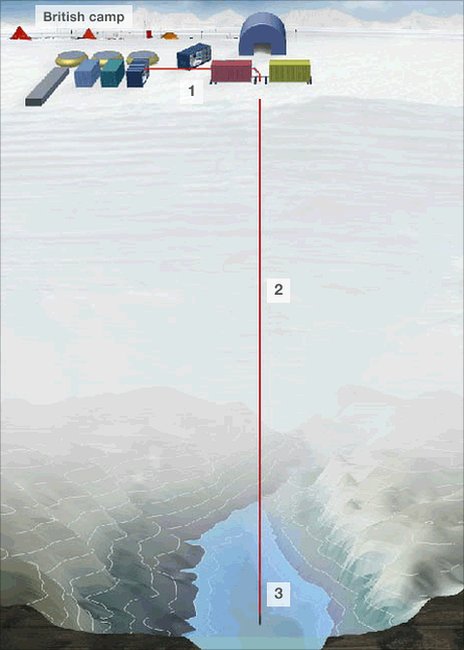British expedition is going to Antarctica to search for life. Their plan is to dig, with hot water, three kilometers down the ice.

The plan is to sample a lake under the ice with hopes to find forms of life, unknown today.
A bonus is finding clues to future climate change impacts.
The BBC reports the team is the first to sample a sub-glacial Antarctic lake.
"Our project will look for life in Lake Ellsworth, and look for the climate record of the West Antarctic Ice Sheet," said the project's principal investigator Professor Martin Siegert from Edinburgh University.
"If we're successful, we'll make profound discoveries on both the limits to life on Earth and the history of West Antarctica," he told BBC News.
The picture on the right explains how this will be done. The unique equipment is specially made for the assignment, which received 7 million pounds by the UK's Natural Environment Research Council.
"This is an unknown environment - we don't know for example whether there will be dissolved gases in the water," Matt Mowlem, the designer of the equipment said.
"So the water at its pressure of 300 atmospheres will be sampled. But when we pull the probe up and the flasks hit the cold air in the borehole, the water will try to freeze; the pressure then increases to around 2,700 atmospheres, and that's greater than anything experienced in ocean engineering."
Once the probe has been hauled up, a coring device will be lowered down the borehole to take samples of the lake floor sediment.
